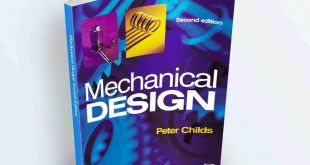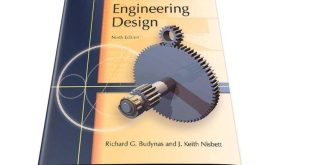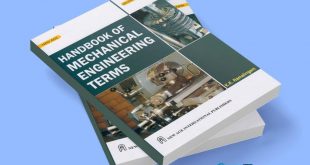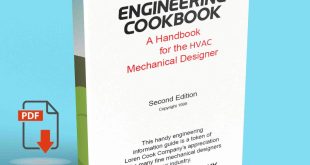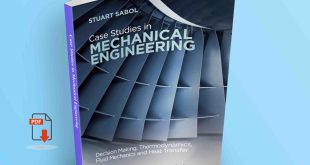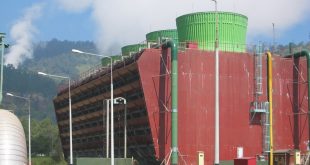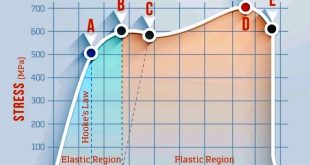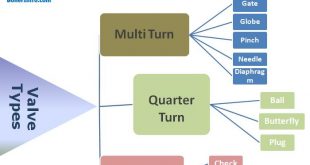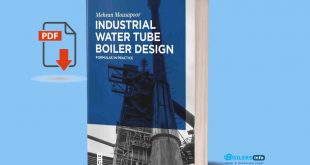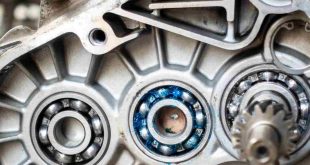🛠️ Engineering Guide to Spring Design Springs are essential mechanical components used in countless applications—from automotive to aerospace, industrial machinery to consumer products. The art and science of spring design require a careful balance of mechanical performance, material selection, reliability, and cost-effectiveness. This comprehensive guide explores the critical aspects of …
Read More »Tag Archives: Mechanical Design
Heat Exchanger Design Handbook
🔥 Heat Exchanger Design Handbook: Essential Guide for Engineers Introduction to Heat Exchangers Heat exchangers (HX) are crucial components in many industrial processes, including power generation, chemical processing, HVAC systems, refrigeration, oil and gas, and food industries. They facilitate the transfer of heat between two or more fluids without direct …
Read More »Mechanical Design Second Edition
🛠️ Mechanical Design: A Comprehensive Guide to Principles, Components, and Applications Mechanical design is the process of transforming innovative concepts into practical, functional, and manufacturable products. It involves applying scientific principles, engineering analysis, and creative problem-solving to meet specific requirements while ensuring safety, efficiency, and reliability. This article covers essential …
Read More »Mechanical Engineering Design by Shigley
“Mechanical Engineering Design” by Joseph E. Shigley is a gold standard in the field of machine design. For decades, this book has been a primary textbook in mechanical engineering programs and a trusted reference for practicing engineers around the world. 📘 About the Book Originally authored by Joseph Shigley and …
Read More »Mechanical Engineering Terms Explained
🔧 Mechanical Engineering Terms Explained: A Comprehensive Guide Mechanical engineering is one of the broadest and oldest branches of engineering. It involves the design, analysis, manufacturing, and maintenance of mechanical systems. To excel in this field, understanding the fundamental terms is essential. This article provides a detailed explanation of key …
Read More »A Handbook For HVAC Mechanical Designer
Introduction Heating, Ventilation, and Air Conditioning (HVAC) systems are the backbone of modern buildings, ensuring thermal comfort, indoor air quality, and energy efficiency. For HVAC mechanical designers, a deep understanding of engineering principles, system components, and regulatory requirements is crucial. This handbook serves as a comprehensive guide to help designers …
Read More »Case Study in Mechanical Engineering
A case study in mechanical engineering is a detailed analysis of a real-world engineering problem, project, or system. It involves investigating how mechanical engineering principles are applied to design, analyze, and improve mechanical systems. Case studies are often used in education, research, and industry to understand engineering challenges and solutions. …
Read More »Cooling Towers Principles and Best Practices
Cooling Towers: Principles and Best Practices for Efficient Operation Cooling towers are essential components of power plants, industrial processes, and HVAC systems. They remove excess heat from systems by transferring it to the atmosphere, ensuring optimal equipment performance and energy efficiency. Understanding the principles and best practices of cooling tower …
Read More »Hooke’s law Stress Strain Diagram Explanation
Introduction Hooke’s law describes the relationship between stress and strain in a material, particularly in the context of linear elasticity. The stress-strain diagram is a graphical representation of this relationship, which helps us understand how a material behaves under mechanical loading. In the diagram, stress is plotted on the y-axis, …
Read More »Industrial Valves Design Operation and Safety Principles
Industrial Valves: Design, Operation, and Safety Principles Industrial valves are essential components in a wide array of industries, including oil and gas, chemical processing, power generation, and water treatment. They regulate the flow, pressure, and direction of fluids, ensuring efficient and safe operations. This article delves into the design principles, …
Read More »Industrial Water Tube Boiler Design
Industrial Water Tube Boiler Design Formulas in Practice by Mehran Mousapoor. This book consists of steps for the thermal & mechanical design of d-type water tube boilers. It provides the reader with guidance for the burner, fan size, and capacity selection, furnace thermal and dimensional design, super heater primary thermal …
Read More »Bearings Basic Concepts and Design Applications
Bearings: Basic Concepts and Design Applications Bearings are essential mechanical components widely used in various industries to reduce friction and facilitate smooth motion between moving parts. By supporting rotating or moving shafts, bearings enable machines to operate efficiently and with minimal wear. Bearings come in numerous types, each designed for …
Read More » Boilersinfo Boiler and Mechanical Power Digital Library
Boilersinfo Boiler and Mechanical Power Digital Library


